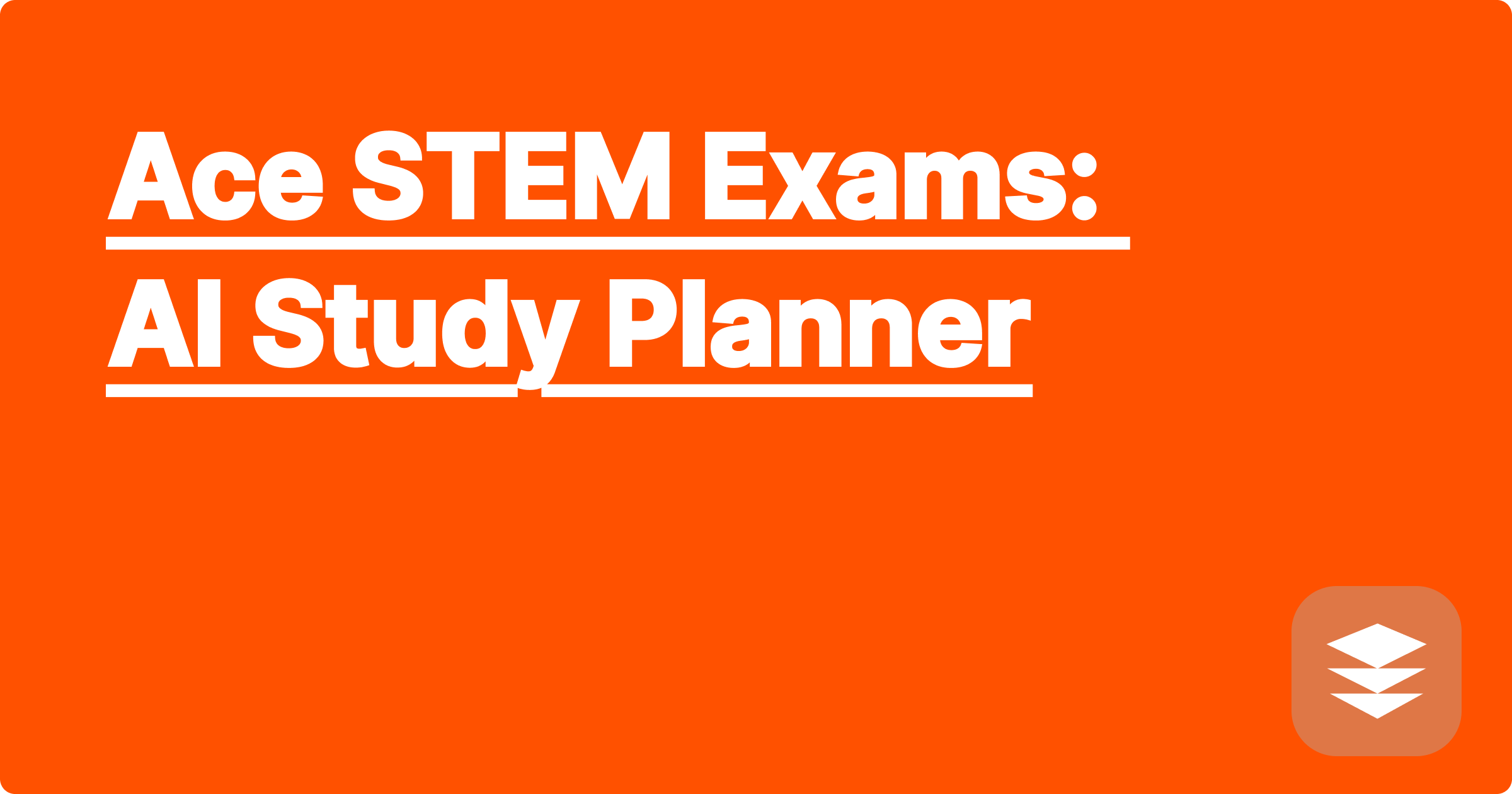
STEM fields present a unique challenge: a vast and constantly evolving body of knowledge. Students and researchers often grapple with overwhelming amounts of information, complex concepts, and the pressure to perform well in demanding exams. Artificial intelligence (AI) offers a powerful new approach to navigating these challenges. AI-powered study planners can personalize learning, optimize study schedules, and provide targeted practice, ultimately leading to improved comprehension and exam performance.
This matters significantly for STEM students and researchers because effective study strategies are crucial for success. Traditional methods often fall short in addressing individual learning needs and adapting to the complexities of STEM subjects. AI can bridge this gap by providing personalized learning paths, identifying knowledge gaps, and offering customized practice exercises. By leveraging AI, students and researchers can unlock their full potential and excel in their chosen fields. This can lead to faster learning, deeper understanding, and ultimately, greater contributions to the STEM community.
STEM exams often cover a broad range of topics, from fundamental theories to advanced applications. Students need to develop a deep understanding of these concepts and be able to apply them to solve complex problems. The sheer volume of information can be daunting, and traditional study methods like rote memorization often prove ineffective. Furthermore, STEM subjects build upon each other, so a weak foundation in one area can hinder progress in others. Identifying and addressing these knowledge gaps is crucial for success. Traditional study plans often lack the flexibility and personalization needed to effectively target individual weaknesses. This can lead to inefficient study sessions and ultimately, suboptimal exam performance.
AI tools like ChatGPT, Claude, and Wolfram Alpha can revolutionize the way STEM students and researchers prepare for exams. These tools can be used to create personalized study plans, generate practice questions, and provide targeted feedback. For instance, ChatGPT can be prompted to create a study schedule based on the exam syllabus and the student's available study time. It can also be used to generate practice questions on specific topics or to explain complex concepts in simpler terms. Claude, with its strong conversational abilities, can be used to simulate a tutoring session, allowing students to ask questions and receive personalized explanations. Wolfram Alpha excels at providing computational and factual knowledge, making it a valuable resource for solving complex problems and verifying calculations.
First, identify the key topics covered in the exam syllabus. This can be done by reviewing the course materials or consulting with the instructor. Next, input these topics into an AI tool like ChatGPT and ask it to create a study schedule. Specify the available study time and any specific learning preferences. The AI will generate a personalized schedule that allocates time for each topic based on its importance and complexity. Then, use the AI to generate practice questions for each topic. Review these questions regularly to assess understanding and identify areas where further study is needed. If a particular concept proves challenging, use Claude or ChatGPT to ask clarifying questions and receive personalized explanations. Finally, use Wolfram Alpha to verify calculations and explore related concepts. This iterative process of learning, practicing, and seeking clarification can significantly improve comprehension and exam performance.
Consider a student preparing for a calculus exam. They can use ChatGPT to generate a study schedule that covers topics like derivatives, integrals, and limits. They can then use the AI to generate practice problems like "Find the derivative of f(x) = x^3 + 2x^2 - 5x + 1" or "Evaluate the integral of ∫(2x + 3)dx from 0 to 2". Wolfram Alpha can be used to verify the solutions to these problems and to explore related concepts like Taylor series or differential equations. For a chemistry exam, a student might use ChatGPT to generate a study plan covering topics like stoichiometry, chemical bonding, and thermodynamics. They could then use the AI to generate practice questions like "Balance the chemical equation for the combustion of methane (CH4)" or "Calculate the enthalpy change for the reaction A + B -> C". Wolfram Alpha can be used to look up chemical properties, calculate molar masses, and explore related concepts like chemical kinetics or equilibrium.
To effectively use AI in STEM education and research, it's important to be specific and clear in your prompts. Clearly define the task you want the AI to perform, whether it's creating a study schedule, generating practice questions, or explaining a concept. Furthermore, actively engage with the AI. Don't just passively consume the information it provides. Ask clarifying questions, challenge its responses, and explore related concepts. This active engagement will deepen your understanding and help you identify any remaining knowledge gaps. It's also crucial to remember that AI is a tool, not a replacement for human learning. Use it to supplement your studies, not to replace them entirely. Continue to attend lectures, read textbooks, and engage in discussions with peers and instructors. By combining the power of AI with traditional learning methods, you can maximize your learning potential and achieve academic success.
In conclusion, AI-powered study planners offer a powerful new approach to tackling the challenges of STEM education and research. By leveraging these tools, students and researchers can personalize their learning, optimize their study schedules, and gain a deeper understanding of complex concepts. Start by exploring the various AI tools available and experimenting with different ways to incorporate them into your study routine. Embrace the power of AI to unlock your full potential and excel in your chosen STEM field. The future of STEM learning is here, and it’s powered by AI. Embrace it and thrive.
Ace STEM Exams: AI Study Planner
AI for Lab Data: Analysis Made Easy
Master STEM: AI Exam Prep Guide
AI Coding Tutor: Debug Smarter
AI in Engineering: Boost Your R&D
AI Math Solver: Instant Solutions